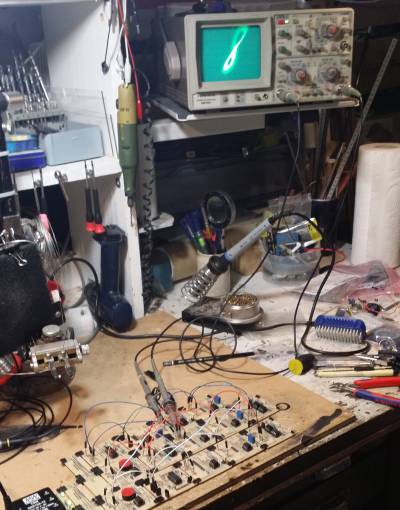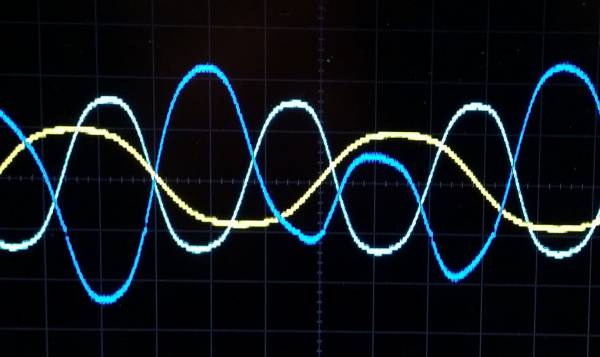This is an old revision of the document!
Table of Contents
Confetti - An Analog Computer
The Analog Computer Confetti is a modular system that makes it possible to perform all kind of computations and operations on base of electrical voltage.
This stack able modular electronic analog computation system was and is still developed by Wolfgang Spahn since 2015.
The analog computer Confetti was further developed and presented at the residency at Art Science BLR and the Indian Sonic Research Organization at the Srishti Institute of Art, Design and Technology, courtesy of Goethe-Institut Max Mueller Bhavan in 2016.
The analog computer was key for the light and sound installation Strange Attractors by Wolfgang Spahn where he “calculated” a Lorenz System to modulate an other Lorenz System.
Usage and Patching
Each module can run one operation, some boards together can be used for analog computing, designing synthesizer and all other kind of analog electronics.
For connecting the Confetti modules one can use the bus on all boards or just use patching wires. Certainly, a combination of both is possible. The connection boards are helpful for putting together a lot of boards.
Chips
The in- and outputs can be patched with normal breadboard patching wires. It's manly based on the operational amplifier TL072 and the operation voltage is 12V/-12V.
Acknowledge
The analog computer was inspired by the articel “Die Chaos-Maschine: Analoge Computer wiederentdecken” Elector Magazine 09-10/2011 by Maarten H. P. Ambaum and R. Giles Harrison (Department of Meteorology, University of Reading, UK).
Further information and wiring examples one can find in the old manuals of analog computer of the online library of the Analogmuseum: http://www.analogmuseum.org/english/library.html.
Analog Artificial Neuron Networks
One can implement analog artificial neuron systems in the analog computer with the
Confetti501 Confetti Neurons as well as with the outdated boards of the Pop Neurons.
Confetti Modules
Neural Network Modules:
Operational Modules:
Special Operation Modules
Connection and Development Modules
Power Modules
Miscellaneous Modules
- Confetti103 Buffered Output (for audio output)
License
These boards are designed by Wolfgang Spahn 2016-20.
They are licensed under a Creative Commons Attribution-NonCommercial-ShareAlike 4.0 International License.





